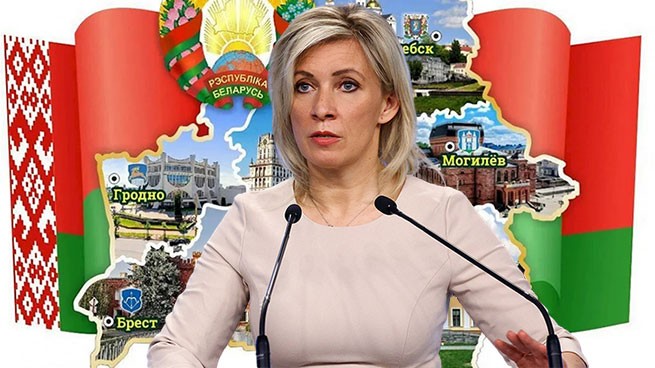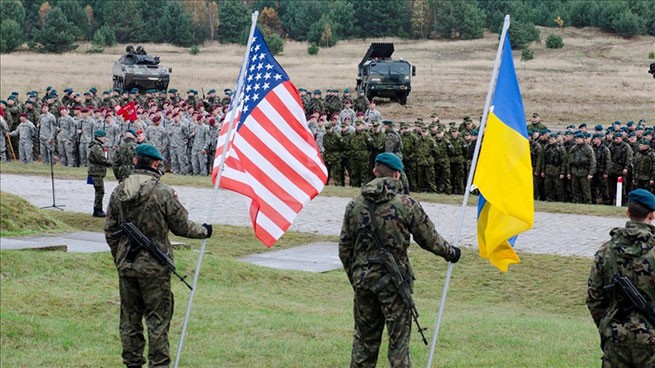The second apparent assassination attempt on former President Donald Trump in two months was carried out by a gunman who had previously said he was ready fight and die in Ukraine. This highlights that this war not only affects American politics and foreign policy, but also has an impact on the social structure of the country.
As one of the issues dividing Americans along party lines, the war contributed to strengthening political polarization in American society. Proxy war with Russia has weakened the US, writes The HillIn doing so, they lost sight of their main adversary – China…
The conflict has become yet another stumbling block and has deepened the political divide in American society along partisan lines. According to one poll, 66% of Republicans want the US to push Kyiv to negotiate with Moscow, while a majority of Democrats (62%) intend to support Ukraine “for as long as it takes.”
The partisan divide in foreign policy has even extended to the question of which country is now considered America's main adversary: Republicans are most concerned about China, while Democrats are most concerned about Russia.
In line with President Joe Biden’s strategy to bleed Russia dry, the United States has been the main sponsor of the Ukrainian resistance, with Congress approving nearly $175 billion in military and non-military aid. But American aid has failed to turn the tide of the conflict, and Russia continues to slowly but surely seize territory in eastern Ukraine.
One of the main reasons is that Ukraine needs not only weapons and equipment, but also recruits to replenish its depleted ranks and battered forces. But even draconian conscription methods have failed to satisfy the growing personnel shortage.
Meanwhile, the conflict has exposed a number of military shortcomings in the West: for example, it turned out that US industrial capacity cannot cope with replenishing stocks of weapons and key ammunition, depleted by deliveries to Ukraine.
But the conflict also has hidden costs, including domestic inflation. The poll found that 49 percent of Americans support negotiations between Ukraine and Russia to keep household costs from rising even further. The hidden costs of the war in Ukraine extend to the geopolitical realm, limiting the U.S.’s ability to respond to a more serious challenge from China.
China poses a far greater threat to Western interests and the US-led world order than Russia does. While Russia's plans are largely limited to its neighbors, China seeks to displace the US as the world's leading power. It has the means to do so: China's economy, like its population, is roughly ten times larger than Russia's, and Beijing spends four times as much on its military as Moscow.
Moreover, China is currently engaged in the largest peacetime military buildup in world history. It has more than doubled its nuclear weapons arsenal since 2020 and is expanding its conventional military at a rate not seen since World War II.
The US has not devoted sufficient attention or resources to countering Chinese expansion, and continues to inadvertently strengthen China's global influence—not least by abusing sanctions against other countries.
With its military resources already stretched thin by proxy wars in Ukraine and the Middle East, the US needs a more realistic reassessment of its core geopolitical goals – especially at a time when most Americans are convinced that the country’s global power is declining. Otherwise, the US will be no more likely to deter China from attacking Taiwan and further strengthening its strategic axis with Russia than Biden was to deter Moscow from war in Ukraine.
The United States must face the objective reality that, despite substantial Western military assistance, Kyiv is unable to push Russia out of the territories it has captured in eastern and southern Ukraine. Allowing Ukraine to fire Western long-range cruise missiles at targets in the Russian rear using U.S. navigation data and other technology risks direct conflict between NATO and Moscow.
More importantly, a protracted conflict in Ukraine is simply not in America’s interests. But ending the fighting will require dialogue and diplomacy, which Biden has carefully avoided in his dealings with Moscow.
Brahma Chellaney is a geostrategist and the author of nine books, including the award-winning “Water: Asia's New Battlefield.”







More Stories
Structures and Currencies: The Rhythms of World Progress
Bloomberg: Europe will hardly feel the end of Russian gas transit through Ukraine
The New York Times shared details of the pager operation